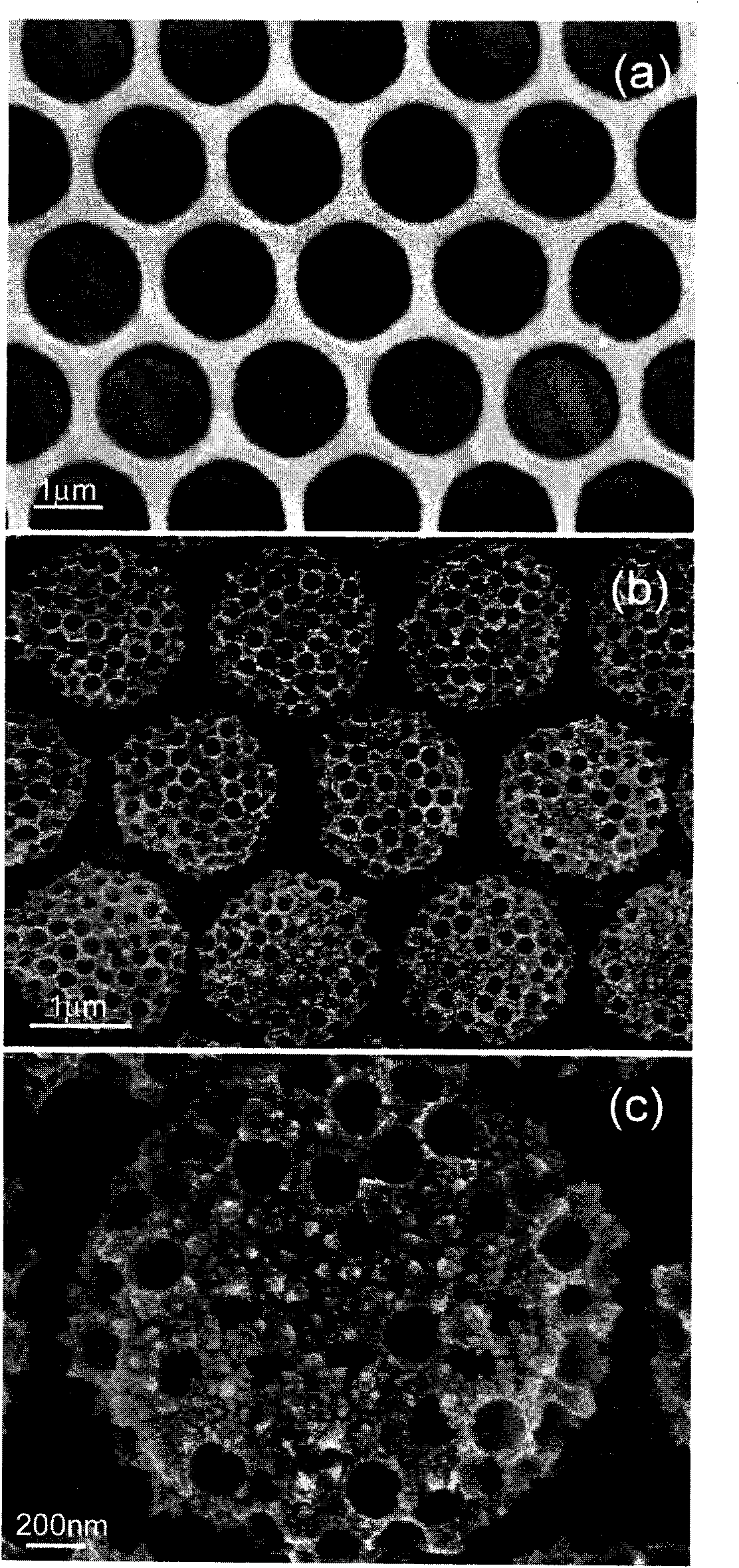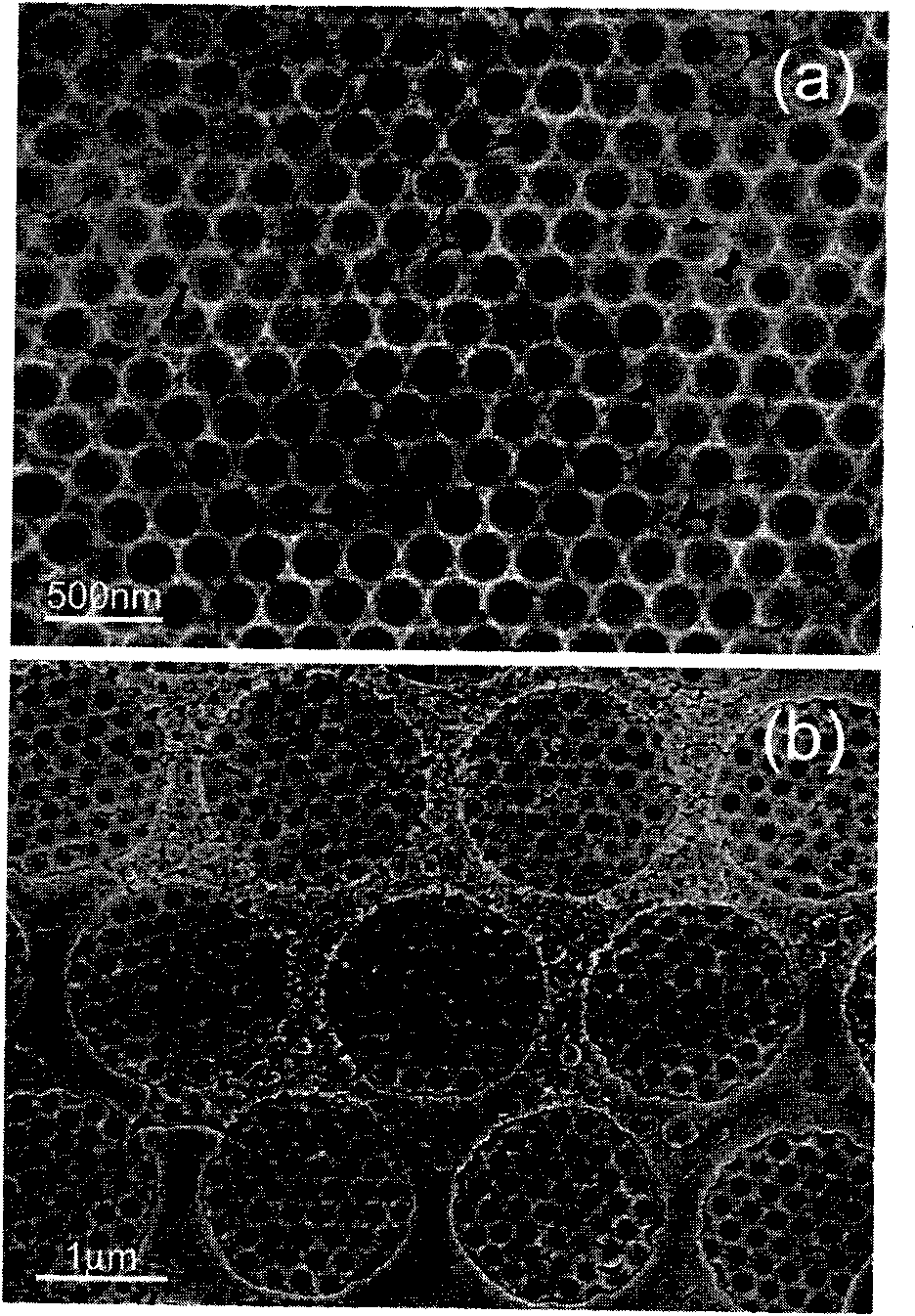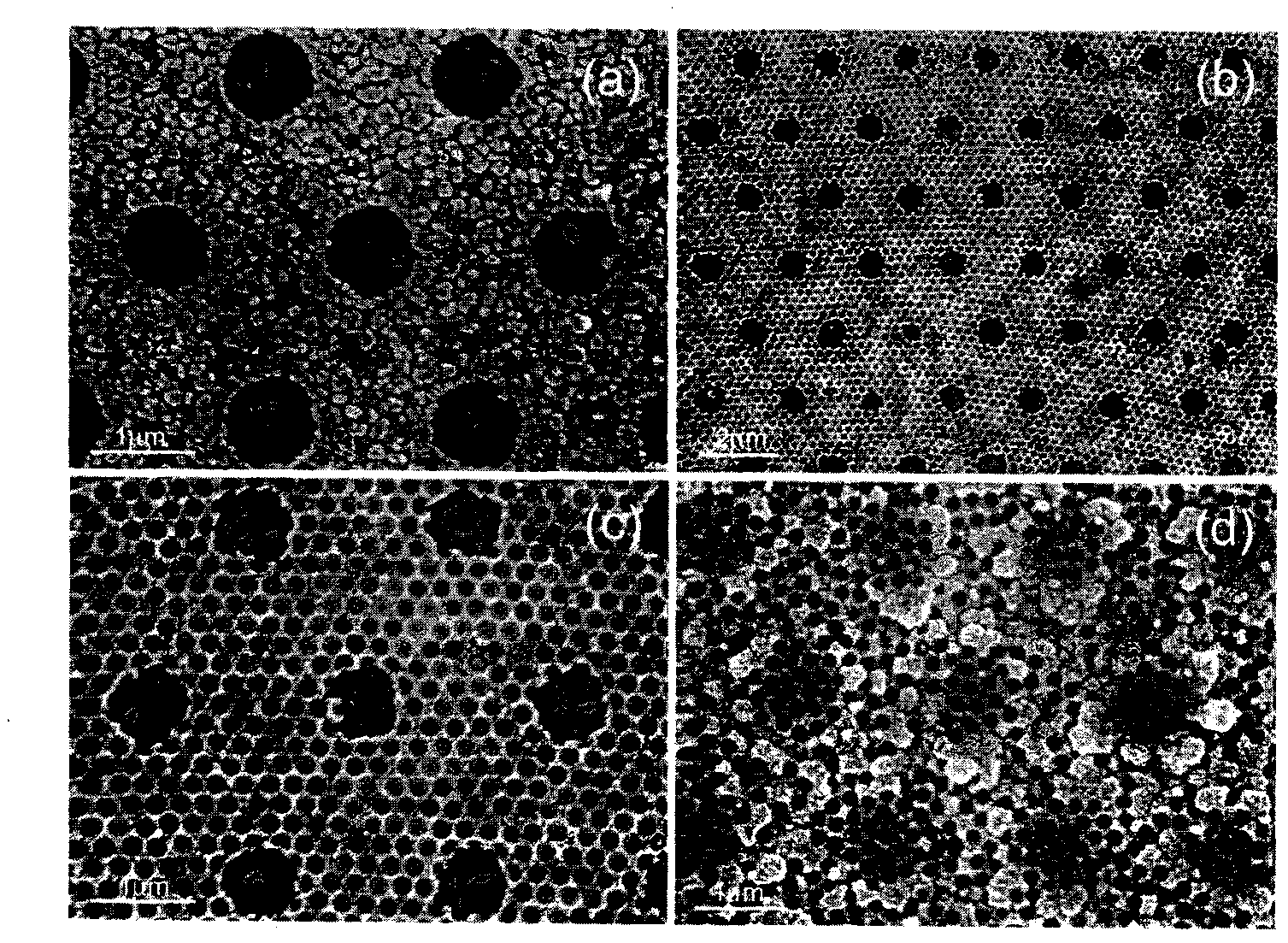Two-dimensional and double-cycle ordered structure array and preparation method thereof
An ordered structure, double-period technology, applied in nanostructure manufacturing, microstructure technology, microstructure devices, etc., can solve problems such as time-consuming, inability to obtain double-period ordered structure arrays, difficulty in controlling the size of silver branches, etc., to achieve The effect of excellent performance
- Summary
- Abstract
- Description
- Claims
- Application Information
AI Technical Summary
Problems solved by technology
Method used
Image
Examples
Embodiment 1
[0028] The concrete steps of preparation are:
[0029] First place the conductive substrate with a single-layer colloidal crystal template with a spherical diameter of 1800nm on it and heat it for 18 minutes at a temperature of 80°C, then drop an aluminum nitrate solution with a concentration of 0.2M on it, and place it Rotate for 35 minutes at a rotational speed of 100r / min; wherein, the conductive substrate is conductive glass. Next, it was first heated at 110°C for 1.2h, then immersed in dichloromethane solvent to remove polystyrene colloidal balls, and then heated at 140°C for 9h to obtain an approximate figure 1 a. Figure 4 a Al2O3 ordered hole array attached to a conductive substrate shown in II. Afterwards, polystyrene colloidal spheres with a diameter of 180 nm were self-assembled into the holes of the ordered hole array of Al2O3 by spin-coating method to obtain an approximate Figure 4 The complex array shown in aIII; wherein, the rotation speed of the conductiv...
Embodiment 2
[0035] The concrete steps of preparation are:
[0036] First place the conductive substrate with a single-layer colloidal crystal template with a spherical diameter of 1900nm on it and heat it for 17 minutes at a temperature of 90°C, then drop an aluminum nitrate solution with a concentration of 0.4M on it, and place it Rotate for 33 minutes at a rotational speed of 150r / min; wherein, the conductive substrate is conductive glass. Next, it was first heated at 115°C for 1.1h, then immersed in dichloromethane solvent to remove polystyrene colloidal balls, and then heated at 145°C for 8.5h to obtain an approximate figure 1 a. Figure 4 Al2O3 ordered hole array attached to a conductive substrate shown in aII. Afterwards, polystyrene colloidal spheres with a diameter of 190 nm were self-assembled into the pores of the Al2O3 ordered pore array by spin-coating method to obtain an approximate Figure 4 The composite array shown in aIII; wherein, the rotation speed of the conductive ...
Embodiment 3
[0042] The concrete steps of preparation are:
[0043] First place the conductive substrate with a single-layer colloidal crystal template with a spherical diameter of 2000nm on it and heat it for 16min at a temperature of 100°C, then drop an aluminum nitrate solution with a concentration of 0.6M on it, and place it Rotate at a rotational speed of 200r / min for 30min; wherein, the conductive substrate is conductive glass. Next, it was first heated at 120°C for 1 hour, then immersed in dichloromethane solvent to remove polystyrene colloidal balls, and then heated at 150°C for 8 hours to obtain the following: figure 1 a. Figure 4 Al2O3 ordered hole array attached to a conductive substrate shown in aII. Afterwards, polystyrene colloidal spheres with a diameter of 200 nm were self-assembled into the holes of the Al2O3 ordered hole array by the spin coating method to obtain the following: Figure 4 The composite array shown in aIII; wherein, the rotation speed of the conductive ...
PUM
| Property | Measurement | Unit |
|---|---|---|
| pore size | aaaaa | aaaaa |
| diameter | aaaaa | aaaaa |
| diameter | aaaaa | aaaaa |
Abstract
Description
Claims
Application Information
 Login to View More
Login to View More - R&D
- Intellectual Property
- Life Sciences
- Materials
- Tech Scout
- Unparalleled Data Quality
- Higher Quality Content
- 60% Fewer Hallucinations
Browse by: Latest US Patents, China's latest patents, Technical Efficacy Thesaurus, Application Domain, Technology Topic, Popular Technical Reports.
© 2025 PatSnap. All rights reserved.Legal|Privacy policy|Modern Slavery Act Transparency Statement|Sitemap|About US| Contact US: help@patsnap.com



